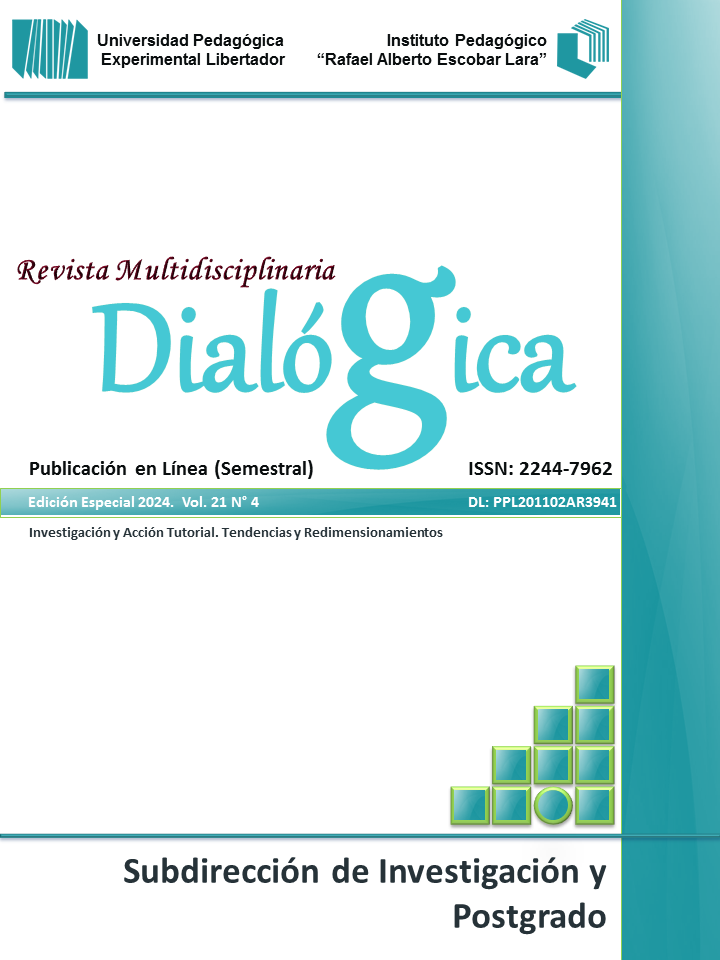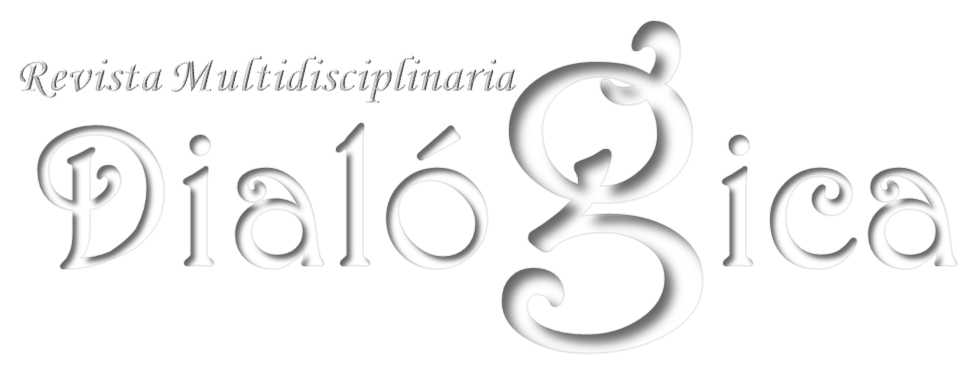HEGEMONY OF RESEARCH EXPRESSED IN THE TUTORIAL RELATIONSHIP
DOI:
https://doi.org/10.56219/dialgica.v21i4.3320Keywords:
Hegemony, investigation, tutorial relationshipAbstract
Within the framework of the system of power relations that is created in the tutor-tutee binomial, this article aims to interpret the process called hegemony of research expressed from the tutorial relationship. The study, of a documentary type, manages to raise the circumstances in which the investigative event takes place; which is mediated, determined and defined by a set of social, political, cultural, economic factors, among others; that combine a current academic ecosystem in research; where meanings, discourses, perceptions and persuasions are communicated and implemented through the institutional scaffolding. In the constitution of hegemony two dimensions can be distinguished, one intellectual and the other moral. It is concluded that the hegemony of research communicated in doctoral theses has been disrupting the foundations of research practices and the academic institutions themselves.
References
Albornoz, O., y Jiménez, E. (2007). La lógica de la academia y las contradicciones con la lógica del poder. El caso venezolano y la revolución bolivariana. Fermentum. Revista Venezolana de Sociología y Antropología, 17(49), 251-282. https://www.redalyc.org/pdf/705/70504903.pdf.
Ander-Egg, E. (1987). Técnicas de investigación social (24 a. ed.). Hvmanitas.
Balsa, J. (2006). Las tres lógicas de la construcción de la hegemonía. Revista Theomai, 14, 16-36. https://www.redalyc.org/articulo.oa?id=12401403
Bourdieu, P. (1988). La distinción: criterio y bases sociales del gusto. Taurus.
Cortés, E. (2014). La hegemonía cultural hoy: la hegemonía como método analítico en los estudios culturales. Revista Pensamiento Actual, 14(22), 13-28. https://www.researchgate.net/publication/273692767_LA_HEGEMONIA_CULTURAL_HOY_LA_HEGEMONIA_COMO_METODO_EN_LOS_ESTUDIOS_CULTURALES
Frosini, F. (2010). La religione dell uomo moderno política e veritá nei quaderni del carcere di Antonio Gramsci. Carocci.
Giacaglia, M. (2002). Hegemonía. Concepto clave para pensar la política. Tópicos, 10, 151-159. https://www.redalyc.org/pdf/288/28801009.pdf. DOI: https://doi.org/10.14409/topicos.v0i10.7430
González Pérez, E., Cortina Bover, V. M. y Naranjo, E. S. (2010). Las relaciones tutor - docente en formación en el contexto de la microuniversidad. Revista Opuntia Brava, 2(3), 54-66. http://148.215.1.155:89/temporal/Portadilla/5738/67517/573867517006.pdf.
Harnecker, M. (1982). Los conceptos elementales del materialismo histórico (66a. ed.). Siglo Veintiuno de España Editores.
León, F. (2011). Teoría del Conocimiento (2a. ed.). Colección Biblioteca de Ciencias de la Educación Serie Filosofía.
López, F. (2011). Los extravíos de la academia y la reforma de los Bárbaros. Asociación de Profesores Universidad de Carabobo.
Martínez, M. (2005). El profesor tutor en el proceso de universalización de la educación superior. Evento internacional de Pedagogía. La Habana - Cuba.
Real Academia Española. (s.f.). Hegemonía. En Diccionario de la lengua española. Recuperado en 10 de febrero de 2023, de https://dle.rae.es/hegemonía
UPEL. (2016). Manual de trabajos de grado de especialización y maestrías y tesis doctorales (5a. ed.). Fondo Editorial de la Universidad Pedagógica Experimental Libertador.
Von Sprecher, R., Cristiano, J. L. y Giletta, M. (2007). Teorías sociológicas: introducción a los contemporáneos. Brujas.
Weber, M. (2006). Conceptos sociológicos fundamentales. Alianza.
Downloads
Published
How to Cite
Issue
Section
License
Copyright (c) 2024 Yomar Alexander Bracho Díaz

This work is licensed under a Creative Commons Attribution-NonCommercial-ShareAlike 4.0 International License.


 @revistadialogica
@revistadialogica DialogicaUPEL
DialogicaUPEL RevistaDialogicaUPELMaracay
RevistaDialogicaUPELMaracay dialógicaupel@gmail.com
dialógicaupel@gmail.com dialogicaupel.blogspot.com
dialogicaupel.blogspot.com https://issuu.com/dialogicaupel
https://issuu.com/dialogicaupel https://revistas.upel.edu.ve/index.php/dialogica/
https://revistas.upel.edu.ve/index.php/dialogica/









